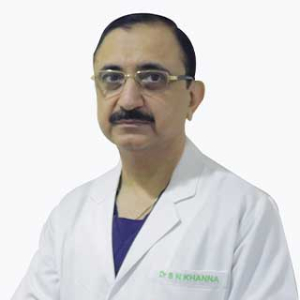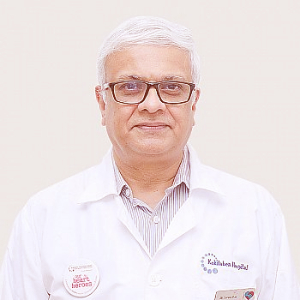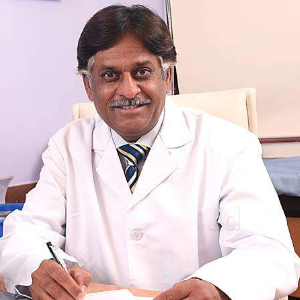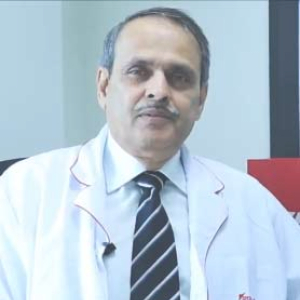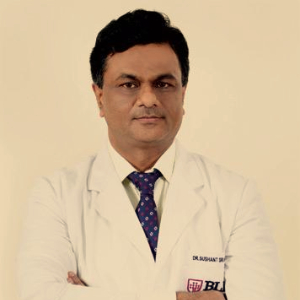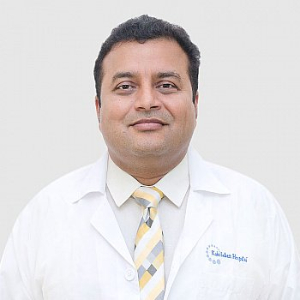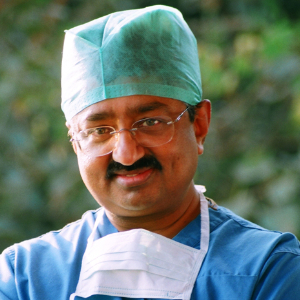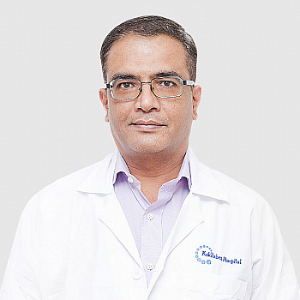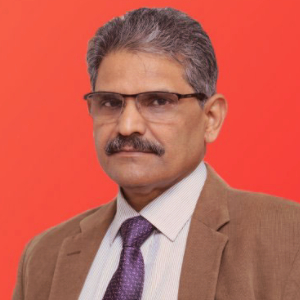Best Doctors in India for Alcoholic Hepatitis Treatment
- Cardiac Surgeon, New Delhi, India
- Over 26 years’ experience
Profile Highlights:
- Dr. Surendra Nath Khanna is a leading cardiovascular and thoracic surgeon specializing in minimally invasive cardiac surgeries, heart valve repairs, and heart failure surgeries.
- Dr. Surendra Khanna has 26+ years of experience in cardiac care and has performed more than 17000 surgeries that include beating heart surgery, mitral and aortic valve surgery, and double valve replacement surgery.
- His expertise lies primarily in adult cardiac surgeries and has done some of the most complex cardiac surgeries in India
- Pediatric Cardiac Surgeon, Mumbai, India
- Over 33 years’ experience
Profile Highlights:
- Dr. Suresh Rao is a highly experienced cardiac surgeon specializing in congenital heart diseases and has performed more than 12,000 surgeries for congenital heart diseases and disorders.
- Dr. Rao holds an extensive experience of over 33 years in Pediatric and congenital cardiac surgery and has performed numerous simple and complex heart defect surgeries with successful outcomes.
- Dr. Suresh Rao introduced the Modified Ultrafication procedure after congenital heart surgery in India and has used the procedure in the treatment of a large number of pediatric as well as adult patients.
- Neurosurgeon, Mumbai, India
- Over 20 years’ experience
Profile Highlights:
- Dr. Suresh Sankhla is an accomplished Neurosurgeon in Mumbai specializing in endoscopic neurosurgery and onco-neurosurgery.
- Dr. Sankhla acquired his training in neurosurgery under the guidance of the best trainers from well-known medical institutes and hospitals in Ireland, UK, USA as well as India.
- He has an equal interest in research and has published more than 100 articles, papers, and abstracts in renowned national and international peer-reviewed journals.
- Cardiac Surgeon, Mumbai, India
- Over 30 years’ experience
Profile Highlights:
- Dr. Suresh V Joshi is a cardiac surgeon in Mumbai with expertise in undertaking complex surgeries as a result of congenital heart diseases.
- He holds an extensive experience of over 3 decades in cardiac surgery and specializes in Coronary Artery Bypass Grafting (CABG); specifically Beating Heart CABG and Minimally Invasive Cardiac Surgeries.
- He is an expert in all kinds of coronary and interventional cardiac procedures and has performed over 15,000 cardiac surgeries for different kinds of heart defects and disorders.
- Chairperson Heart & Lungs Transplant, New Delhi, India
- Over 20 years’ experience
Profile Highlights:
- Dr. Sushant Srivastava is a renowned cardiovascular and thoracic surgeon specializing in heart transplantation.
- He specializes in performing Beating Heart Bypass surgeries and is credited with performing the procedure on the oldest patient in India (96 years old). He also performed the first awake CABG in North India.
- He has taken up close to 10000 cardiac cases in his career and performed 3000+ cardiac surgeries related to Coronary Artery Bypass Grafting (CABG), redo coronary artery surgery, heart failure surgeries, heart valve surgeries, and various other types of cardiac surgeries.
- Interventional Neuroradiologist, Gurugram, India
- Over 20 years’ experience
Profile Highlights:
- Dr. Tariq Matin is a Neurologist in Gurugram specializing in Interventional Neuroradiology.
- He holds over a decade of experience in the field and holds a fellowship from Foch Hospital, France in interventional neurosurgery and also received his training from AIIMS in Delhi.
- He provides treatment for acute ischemic stroke with the use of mechanical and chemical thrombolytic agents and endovascular coiling of complex aneurysms.
- Orthopedic Surgeon and Spine Surgeon, Mumbai, India
- Over 20 years’ experience
Profile Highlights:
- Dr. Vishal Peshattiwar is a leading Spine Surgeon in Mumbai specializing in Minimally Invasive Spine Surgeries (MISS)
- He has an experience of more than 2 decades in spine surgery and holds the credit of performing over 4000 spinal surgeries to
- He is the first in India to use the MISS technique on a patient with liver failure and Tuberculosis.
- Dr. Vishal Peshattiwar’s most notable case till date was performing a Revision Spine Surgery through MISS on the oldest patient in India.
- Cardiac Surgeon, Bengaluru, India
- Over 30 years’ experience
Profile Highlights:
- Dr. Vivek Jawali is a renowned Cardiothoracic and Vascular Surgeon in India and has performed more than 18,000 cardiothoracic and cardiovascular surgeries.
- He has several firsts to his credit that including the first beating heart bypass surgery in 1992 and the first Minimally Invasive Heart Bypass surgery in 1994 in India.
- He performed the first Awake Cardiac Surgery in 1999 which is done without general anesthesia or ventilator but under continuous high thoracic epidural. He also performed the first awake open heart surgery in the world without general anesthesia or ventilator on a 74-year-old patient for triple bypass with aortic valve replacement.
- Surgical Oncology, Mumbai, India
- Over 22 years’ experience
Profile Highlights:
- Dr. Yogesh Kulkarni is a well-known name in the field of Gynae Onco surgery.
- He holds an experience of more than 22 years and has performed more than 2000 gyne oncological surgeries.
- Dr. Yogesh Kulkarni has performed over 1000 gyne cancer surgeries in the hospital. He also holds the credit for 500 ovarian, 250 endometrial, 214 cervical cancer surgeries, and 144 robotic cancer surgeries at KDAH alone.
- He gained popularity when he performed the first Reported Fertility Sparing Surgery for Cervical Carcinoma on a 4-year-old for clear cell cervical carcinoma
- Cardiac Surgeon, New Delhi, India
- Over 30 years’ experience
Profile Highlights:
- Dr. Yugal Kishore Mishra is a well-known cardiovascular and thoracic surgeon in Delhi specializing in Minimally Invasive and Robotic cardiac surgeries.
- He has 3 decades of experience in CTVS and has performed more than 19,000 open heart surgeries to date that including various types of minimally invasive cardiac procedures such as the port access approach for valve surgery and ASD closure.
- He is the founder of the Robotic Cardiac Surgery Program at Fortis Escorts Heart Institute where he has performed over 500 robotic cardiac surgeries.
Best Hospitals in India for Alcoholic Hepatitis Treatment
ALCOHOLIC HEPATITIS
Alcoholic hepatitis is a liver infection, which is mainly caused by frequent, heavy use of alcohol. Fat can build up in the liver cells, which might lead to inflammation as well as scarring of the liver.
Alcoholic hepatitis might be mild or severe. A patient might even need a liver transplant if proper treatment is not provided, or if they don’t stop consumption of alcohol.
It is also notable that all heavy drinkers don’t develop this condition, and sometimes this condition even develops in people who drink moderately. However, if you are diagnosed with this condition, it is important for you to quit drinking alcohol. People who continue drinking alcohol might face a huge risk of serious liver damage as well as death.
Symptoms
Depending on the amount of damage to the liver, the symptoms can vary. If you are having a mild form of the disease, you might not even experience any symptoms at all. However, as the damage continues to grow, you might experience the following:
- Changes in appetite
- Dry mouth
- Weight loss
- Pain or swelling in the abdomen
- Jaundice, or yellowing of the skin or eyes
- Fever
- Nausea and vomiting
- Easy bleeding or bruising
- Changes in your mental state, including confusion
- Fatigue
The symptoms of this condition are similar to those caused by a few other health conditions. Therefore, if you develop any of these symptoms, it is best to get a proper diagnosis as well as begin treatment.
Causes & risk factors
Alcoholic hepatitis generally develops when the alcohol you drink causes damage to your liver. However, it is not clear why alcohol does this damages only to some heavy drinkers.
Few factors that are known to play a role in this condition include:
- The body’s process that breaks down alcohol produces some toxic chemicals
- These chemicals can trigger inflammation that can destroy the liver cells
- Thus, over time, scars replace healthy liver tissue, thus interfering with the function of the liver
- This irreversible scarring, which is also termed cirrhosis, is the final stage of alcoholic liver disease
If you have hepatitis C and continue to drink, even moderately, you are more likely to develop cirrhosis.
Some heavy drinkers are also malnourished because they don’t eat a proper balanced diet. Alcohol and its byproducts also prevent the body from absorbing nutrition properly. Lack of nutrition can contribute to liver cell damage.
Some other risk factors that can lead to this condition include:
- Your sex- Women are usually at a higher risk of developing alcoholic hepatitis since the way alcohol is processed in women is different.
- Binge drinking- Having over five drinks within two hours for men and four or more for women can increase the risk of alcoholic hepatitis.
- Obesity- Heavy drinkers who are overweight are also more likely to develop alcoholic hepatitis and to progress from that condition to cirrhosis.
- Race and ethnicity- Hispanic and Negroid people might be at higher risk of alcoholic hepatitis.
- Genetic factors- According to studies, there may be a genetic component in alcohol-induced liver disease. However, it is difficult to separate genetic and environmental factors.
Diagnosis
If you are showing symptoms of alcoholic hepatitis, your doctor will first inquire about your medical history and alcohol consumption. Next, he/she will perform a physical exam to see if you have an enlarged liver or spleen. They might also need a few more tests to confirm your diagnosis, such as:
- Complete blood count (CBC)
- Liver function test
- Ultrasound of the liver
- Abdominal CT scan
- Blood clotting tests
In some cases, a liver biopsy might also be needed to confirm the diagnosis of alcoholic hepatitis. A liver biopsy requires your doctor to remove a tissue sample from your liver, which is then tested in the lab. This method helps to show the severity and type of liver disease.
Treatment
Stopping alcohol consumption is the most important treatment for alcoholic hepatitis. There is no cure for this condition, but treatment can help in reducing or eliminating symptoms, or stopping its progression.
It is also important to note that scarring of the liver is permanent, but treatment can aim to restore as much function as possible.
Dietary changes
Medication
Liver transplant
The best hope of recovery is to be aware of the signs and symptoms as well as to reduce, manage, or if possible, completely stop consumption of alcohol.
Complications
Alcoholic hepatitis might lead to severe other complications such as:
- Enlarged veins (varices)- In this condition, blood that is unable to flow freely through the portal vein, can back up into other blood vessels in your esophagus or stomach.
- Hepatic encephalopathy- This condition can be caused by the buildup of toxins if your damaged liver is unable to remove all the toxins from your body. It involves confusion, drowsiness, and slurred speech.
- Ascites- Ascites is a condition in which the fluid that accumulates in the abdomen may get infected and thus, require treatment with antibiotics. Although this condition is not life-threatening, it can be a sign of advanced alcoholic hepatitis, or cirrhosis.
- Kidney failure- A damaged liver affects blood flow to the kidneys, thus resulting in kidney failure.
- Cirrhosis- The scarring of the liver might lead to liver failure.
Prevention
Alcoholic hepatitis might be prevented if you take the following steps:
- Drink alcohol in moderation, if at all- For healthy adults, moderate drinking means no more than one drink a day for women of all ages and men older than 65, and not over two drinks a day for men aged 65 and younger. However, if you prevent all alcohol, it is a certain way to prevent this condition.
- Check before mixing medications and alcohol- Ask your doctor if it’s safe to drink alcohol while you are taking medications. Consider reading the warning labels on over-the-counter medications as well. Don’t drink alcohol when you are taking medications that warn of complications when combined with alcohol.
- Protect yourself from hepatitis C- Hepatitis C is an infectious liver disease that is caused by a virus. If it is left untreated, it may lead to cirrhosis. If you are having hepatitis C and you consume alcohol, you’re generally more likely to develop cirrhosis than if you don’t drink.

